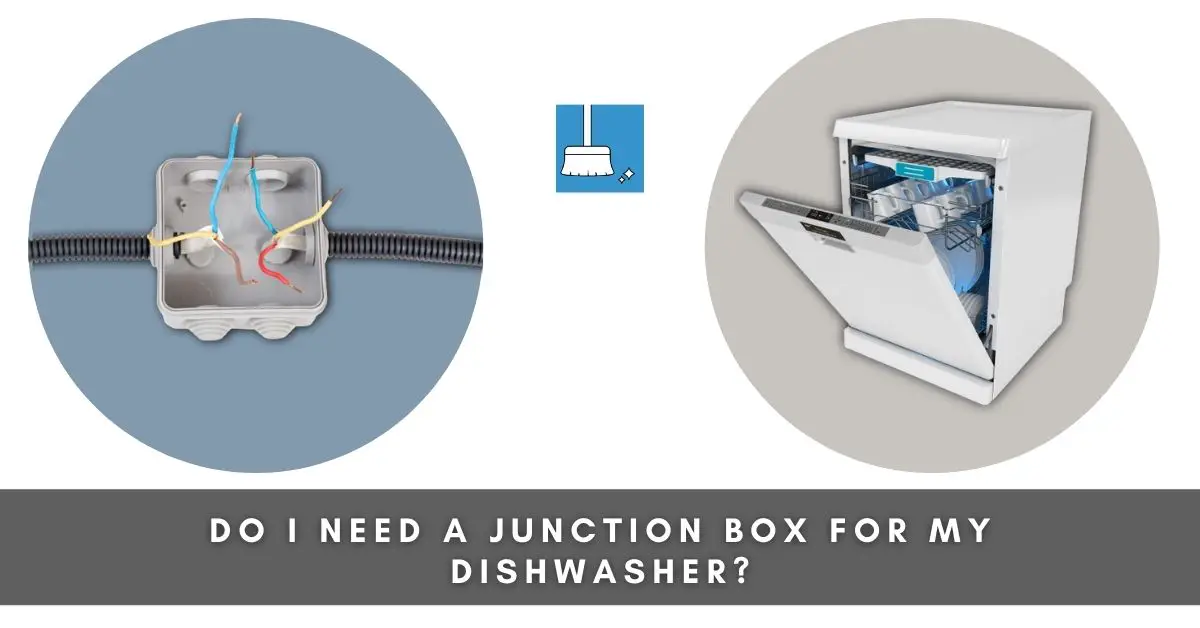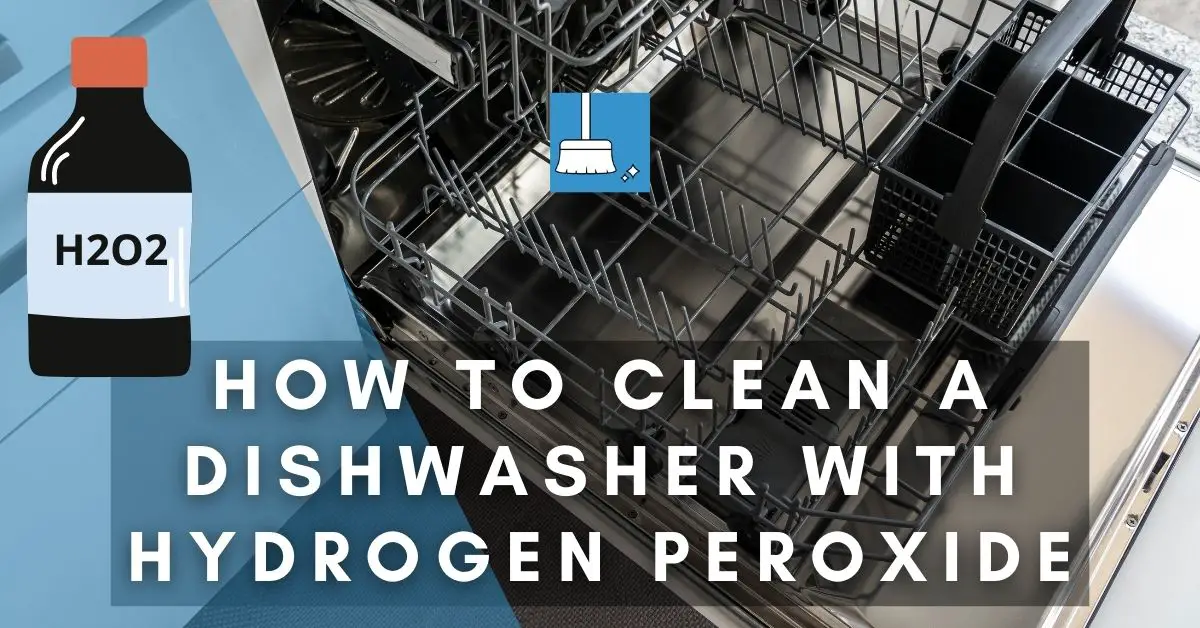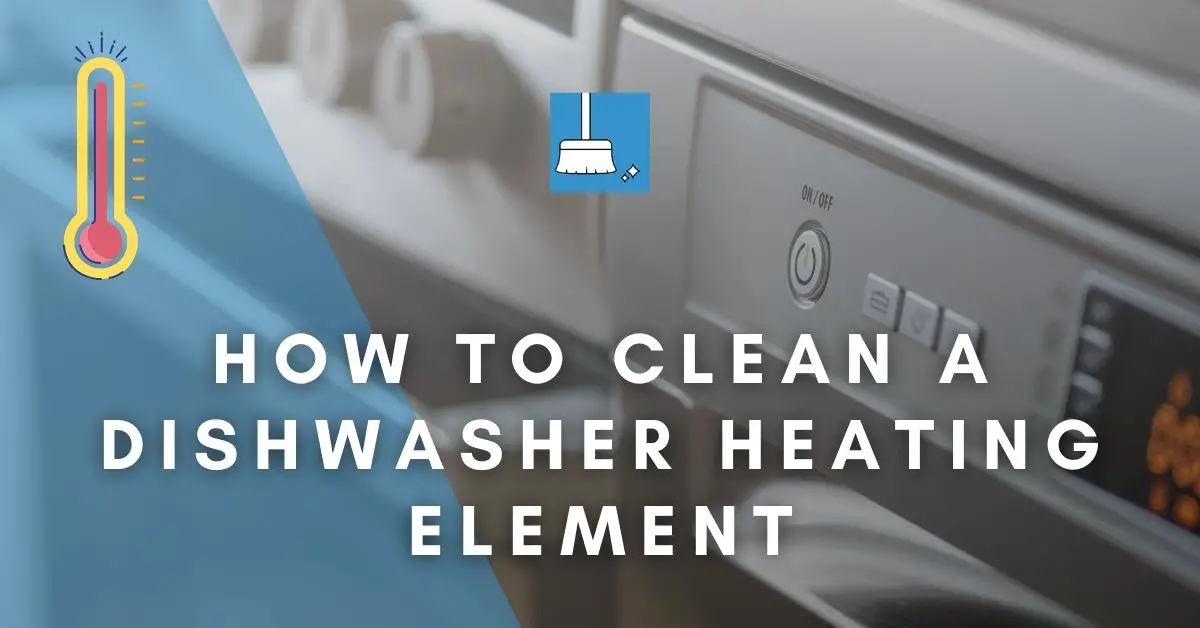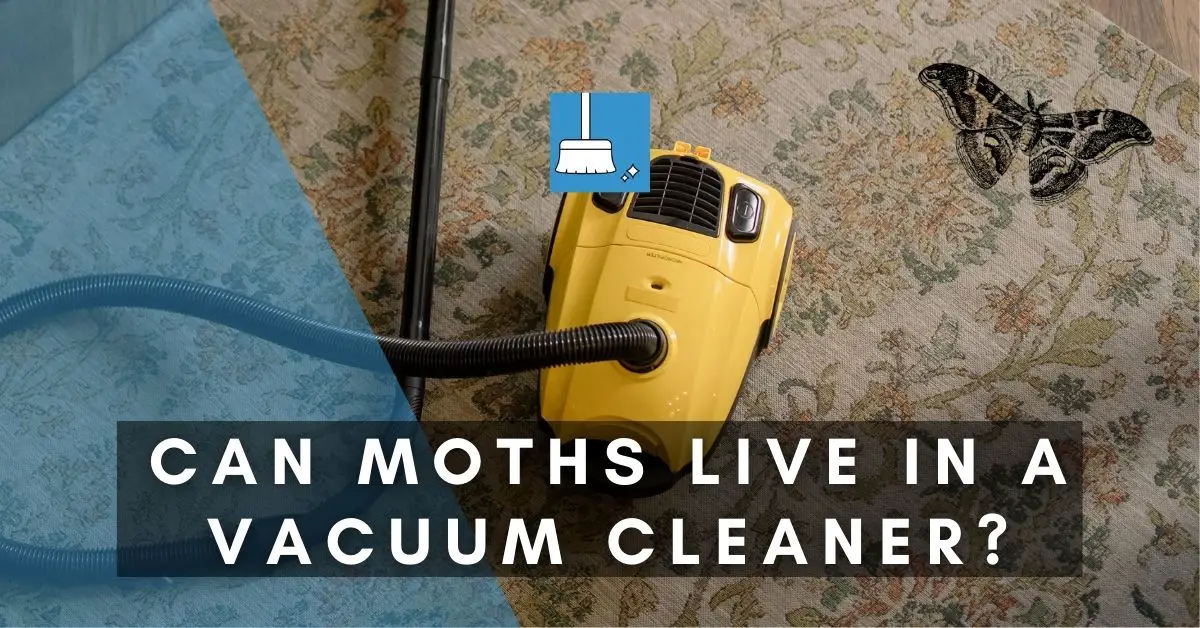Many people can install dishwashers themselves and so they just want little pieces of information to smoothly get through the process.
After finally deciding to invest in a dishwasher, you are wondering if a junction box is needed for installation. Although dishwashers sometimes come with a junction box, is it really necessary?
This article explains if you need a junction box; why you need it; and the steps for hardwiring a dishwasher into a junction box. We’ll also be answering other related questions and giving solutions to the problem of burnt junction boxes.
Do I Need a Junction Box for My Dishwasher?
In most cases you don’t need a special junction box for your dishwasher; all you need is a dedicated outlet. Some dishwasher brands will require that you use their own junction box so you should check the requirements of the particular model that you have.
Connecting a dishwasher to the wire that goes to the main power panel is known as hardwiring. So, rather than plugging your dishwasher into an electrical outlet, you are simply connecting the circuit wires in the junction box.
Although hardwiring a dishwasher is not a very easy task, you need to take time to understand the appliance to hardwire it properly.
Not all dishwashers are hardwired. Some dishwashers are sold to be hardwired, while some come with a three-prong cord and an electrical power cord that is to be attached to a wall socket.
You should consider getting a professional installer to help hardwire your dishwasher if you have never tried your hands on it before.
Brands like Bosch come with a junction box because it is needed for hardwire connection.If your diswasher doesnt come with one, you may get one and remember that plastic junction boxes are better for wiring.
3 Reasons Why Dishwasher Junction Box Will Be Required
Here are the reasons:
1- If you have a hardwired set up for your dishwasher, leaving the wire connections lying around the kitchen can be a risk so you will need a junction box.
The only cord that comes with the dishwasher is for plugging it into a three-prong outlet. The plug is for connecting the back of the dishwasher to direct electricity, while the junction box at the other end is for the hardwired connection.
2- A junction box will protect the wired connections from water and any accidental contacts.
3- Electrical codes in some areas will require that your dishwasher be hardwired, and for this, you will need a junction box.
Limitation of a Dishwasher Junction Box
In case your dishwasher malfunctions, it is time-consuming to open the junction box and turn off the switch that powers the dishwasher.
How to Hardwire My Dishwasher into a Junction Box?
Dishwashers are preferably hardwired for safety reasons. Knowledge of the electrical wiring of your house is also needed for this. You can easily hardwire your dishwasher into a junction box with these simple steps.
To begin, gather your tools: a Philips screwdriver, wire strippers, pliers, a utility knife, and an electrical tester.
Step 1: You need to identify the electrical circuit on your home’s breaker panel that connects to the dishwasher.
This is to avoid accidental contact with direct electricity. The electrical panel can be found usually in a closet or in the basement of your house.
Step 2: Before touching the wires, use an electrical tester to see if there is any current flowing through them.
Either in your left or right cabinet beside where the dishwasher is installed, drill a 3/4-inch hole at the side.
Mount the junction box on the wall with a stud and run the dishwasher wire through the hole into the wiring junction box.
Step 3: Remove the screws that hold the box’s cover in place with the Philips screwdriver. After removing the screws, lift the cover off.
You will see the connector block with wires. Run the electrical circuit cable through the wall into the junction box.
Step 4: To make a hardwire connection, use wire strippers to remove 1/2 inch of each wire’s cover. Use the utility knife to carefully cut down the edge between the wiring.
Splice the electrical circuit wire and the dishwasher wire into the corresponding positive, negative, and ground wires.
Insulate the connection with electrical tape to provide additional protection. If you find this difficult, you can contact a professional for help.
Step 5: Use the provided screws to secure the junction box cover.
CAUTION: All wire splices should be done in a junction box. Having naked wires laying underneath the kitchen sink is risky. You should also make sure that the junction box is accessible.
How Do You Install a Junction Box on a Dishwasher?
The main idea of a junction box is to extend wiring and protect wire splices against weather and the elements. Dishwashers sometimes come with a junction box and a 3-prong power cord.
Although installing a dishwasher can be a DIY job, it requires house wiring and plumbing skills, so getting a technician, electrician, servicer, or another professional installer will be ideal.
A junction box can be installed in the adjacent cabinet with the screws provided by the installer. You will need a screwdriver to get this done. It is not installed on the dishwasher, but rather beside it.
After securing a hardwire connection between the electrical circuit and the dishwasher power cord, you can now connect the power cord to your dishwasher.
My Dishwasher Junction Box Got Burned! (2 Causes!)
1- Loose Connection
A faulty connection can cause your junction box to burn out. If the screws are not fitted in properly, it can cause wire arcing and this can result in overloading.
Using a weather-proof junction box can prevent wire arcing and overloading.
You should also make sure that the wires are connected with tight screws in the junction box during installation.
2- Worn out Wires
Worn-out wires can cause your junction box to catch fire. It can cause wire arcing and even electric shock.
Fixing Your Burnt Dishwasher Junction Box
If the junction box is melted or a burning smell is coming from it, these are simple issues and can be resolved with these steps:
1- Identify what the Cause of the Problem Is: Before deciding to replace the whole dishwasher, identifying the actual cause of the burnt junction box is important.
Inspect the circuit breaker, wire splices, and the dishwasher for signs of burning or fire. You should also check cables for arcing. These can be the cause of a burnt junction box.
2- Replace the Junction Box: You should start by unplugging the power cord from the dishwasher and then switching off the circuit from the electrical panel.
Using a screwdriver, disassemble the junction box and remove all hardwire connections. Replace the old junction box with a new one and reconnect the wires again.
After successful hardwiring, replace the cover of the junction box and screw it in place.
Ideal Place for the Junction Box
The junction box cannot be placed directly behind the dishwasher. The best location for your dishwasher is the cabinet adjacent to the space occupied by the dishwasher. This can either be the left or right cabinet.
This is basically to make all the wires easily accessible without having to move the dishwasher.
The Need for a Dedicated Outlet!
Dishwashers consume a lot of power, so it’s safer to keep them on a dedicated circuit. The dedicated dishwasher circuit can’t supply power to other household appliances.
The circuit servicing your dishwasher should have a circuit breaker of at least 15 amps.
Connecting a dishwasher and other major appliances is likely to cause a power overload, which has severe consequences.
Most dishwashers run on 110 or 120-volt power. Standard outlets can supply 15 amps, and this is enough to make your dishwasher work perfectly.
Can I Connect My Dishwasher and Garbage Disposal on the Same Circuit?
This all depends on the dishwasher’s manufacturer.
Most codes may require 2 separate outlets, but some dishwashers now come with a standard power cord that allows you to plug them into a standard wall socket.
So they can safely share the same outlet with garbage disposals. Just make sure that the combined appliances do not exceed the 20-amp circuit.
Conclusion!
Using a junction box is a wise thing to do when installing your dishwasher.
We have shown you the steps to install it, the ideal place for keeping it, and how to choose the right one.






Pingback: Can You Take Your Dishwasher When You Move? (2022 Guide) »
Pingback: Can You Replace A Dishwasher With An Oven? (How?) »
Pingback: Can You Put A Dishwasher Against A Wall? (Location Rules!) »
Pingback: Do Dishwashers Come With A Water Supply Line? (Explained!) »
Pingback: Can You Plug A Dishwasher Into A Regular Outlet? »